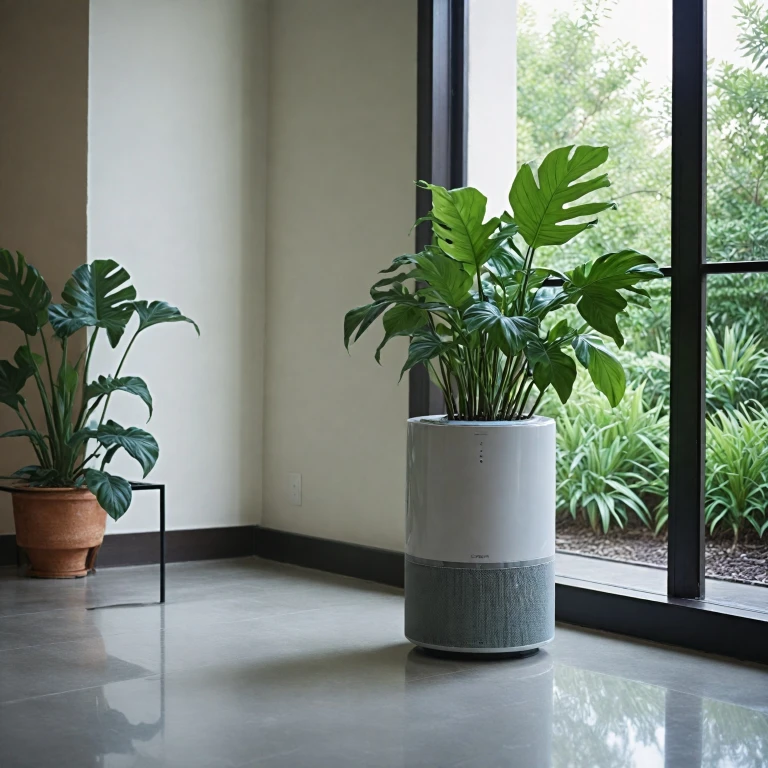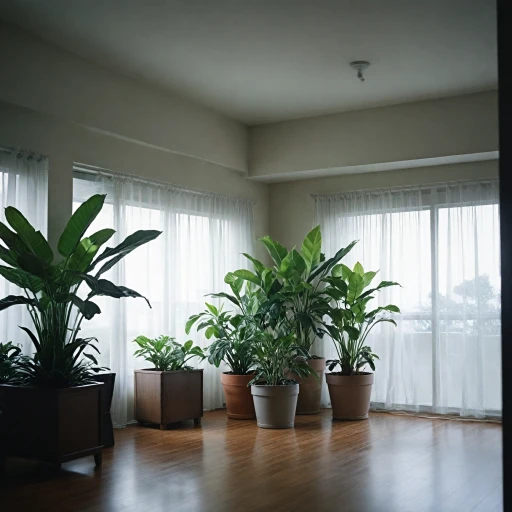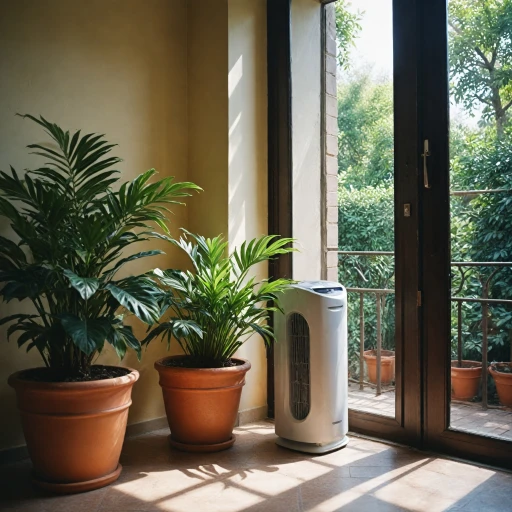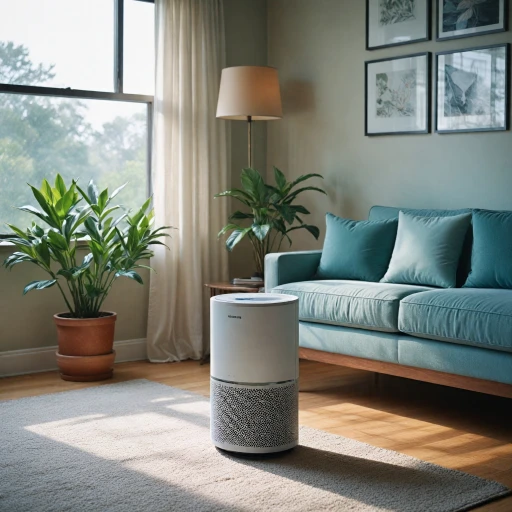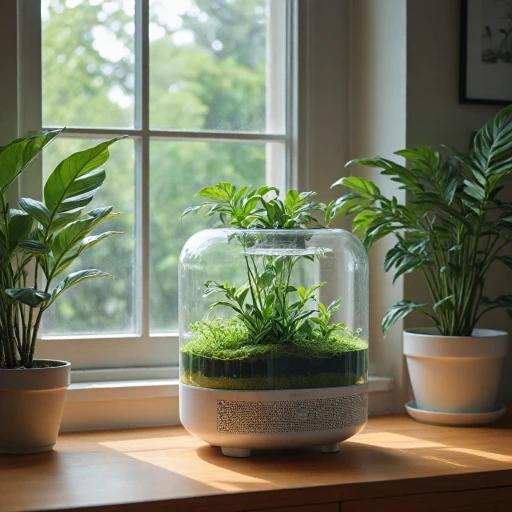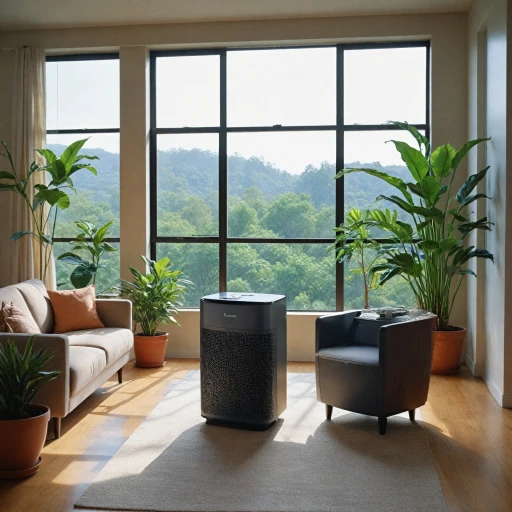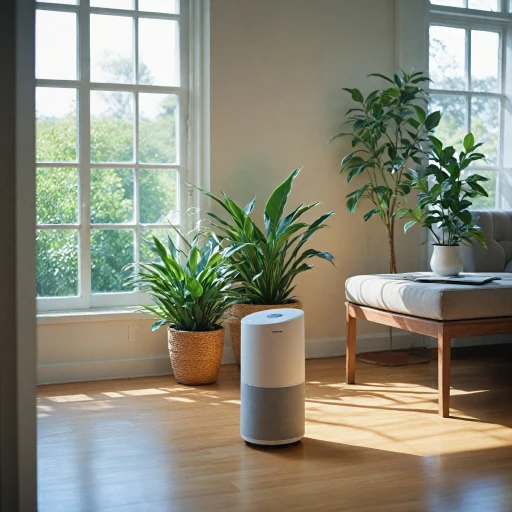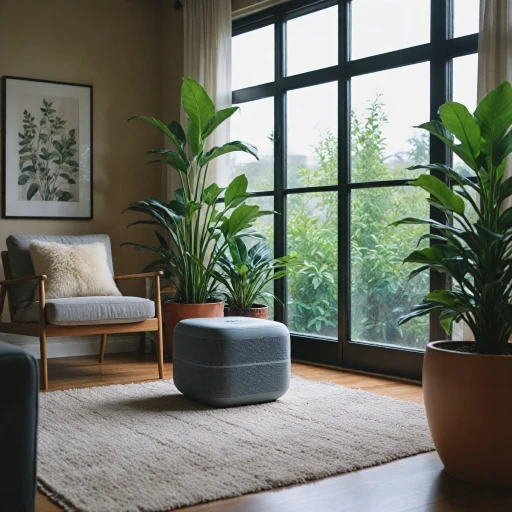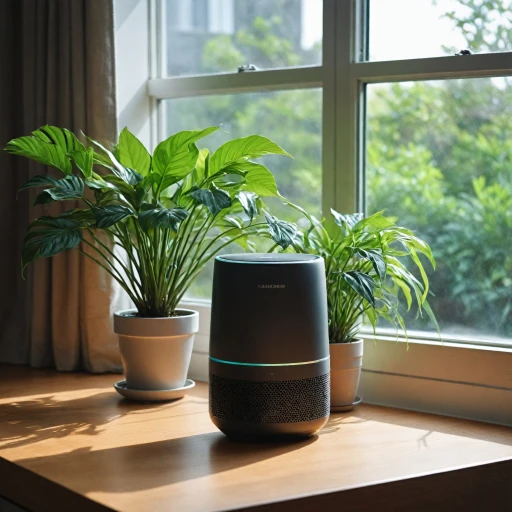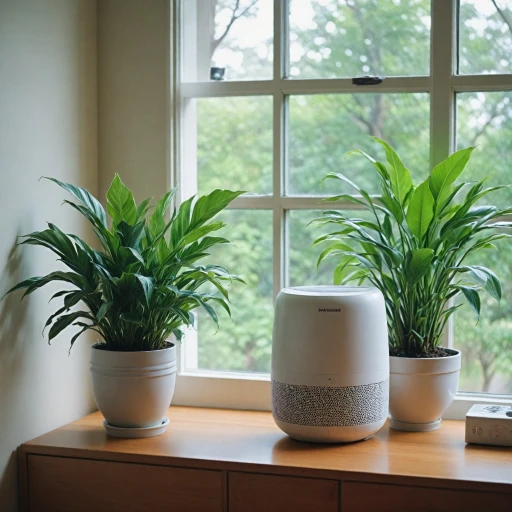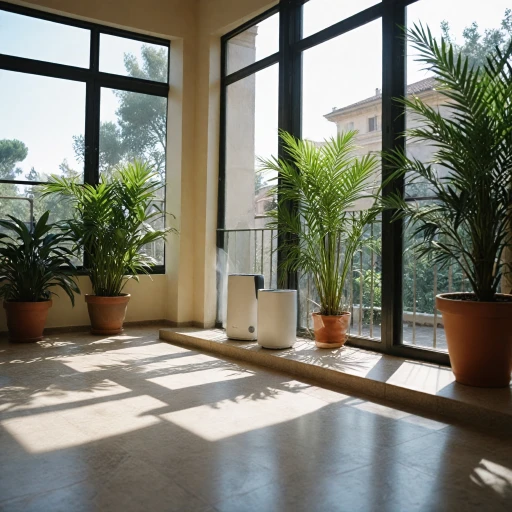
Understanding Water-Based Air Purifiers
What are Water-Based Air Purifiers?
Water-based air purifiers use the natural filtration power of water to cleanse the air in your room. Unlike traditional air purifiers that rely on HEPA or other types of air filters, water air purifiers draw air through a water bath to remove impurities, freshening the air with just the flow of water.
Core Functionality Explained
The fundamental process includes drawing air into a chamber where it meets a swirling motion of water. This motion traps dust, allergens, and other impurities, leaving you with fresh, revitalized air. It’s like giving your room a breath of fresh aire using a process similar to natural air purification cycles in nature.
Understanding the Price and Features
When considering a water-based air purifier, you'll find that prices vary based on features such as the presence of an LED light or a night light, adding to the ambiance along with enhancing air purification quality. Devices like the Airmega might come at a varied sale price, depending on their coverage area and additional functionalities like the integration of essential oils or a small ozone generator.
For instance, some models like the Blueonics Fresh offer a blend of air washing and the use of essential oil as an air revitalizer freshener. Reviews often highlight these as among the best options for someone seeking a purifier water system that is both effective and aesthetically pleasing.
More Than Just a Purifier
Water-based air purifiers like the Sirena Twister not only offer purification but also add humidity to the air, offering a dual function of an air washer and purifier. This can improve indoor air quality, making it a popular choice during sale periods for those seeking multifunctionality.
For further understanding of how these purifiers fit in the broader landscape of air purification solutions, consider reading about another category of air purifiers at different types of purifiers that might complement or contrast with water-based purifiers in terms of performance and technology.
Benefits of Using Water Air Purifiers
Advantages of Opting for Purifiers with Water Filtration
Water-based air purifiers have become increasingly popular due to their unique air purification method. These systems stand out from other air purifiers because they utilize water to trap airborne particles, allergens, and impurities. Here's a closer look at why many homeowners are considering a water-based air purifier for maintaining a cleaner and fresher indoor environment.- Enhanced Air Quality: The primary benefit of water-based air purifiers is their ability to improve air quality by removing dust, pollen, and pet dander. Water acts as a natural filter, catching fine particles that other filters may miss, resulting in fresher air that’s free from harmful impurities.
- Dual Functionality: Many water air purifiers, like the popular Air Revitalizer Freshener, not only clean the air but can also act as humidifiers. By doing so, they add moisture to the air, which can be especially beneficial in dry climates, improving comfort and reducing static electricity.
- Essential Oils Compatibility: Some water-based air purifiers can be combined with essential oils, adding a pleasant fragrance to your room while purifying the air. This dual-purpose function turns your air purification device into an air revitalizer, filling your home with fresh scents and enhancing the air ambience.
- Low Maintenance: Unlike traditional HEPA filters that require regular replacement and could increase the price of ownership over time, water-based systems usually just need regular water changes. This makes maintenance simpler and often more cost-effective in the long run.
- Affordable Options: The sale price of water-based air purifiers can be attractive. Many models, such as the Sirena Twister and Bluonics Fresh, offer an entry-level price point. They provide air quality benefits similar to higher-priced counterparts without stretching your budget.
- Eco-Friendly Choice: By eliminating the need for disposable filters, water-based purifiers can be an environmentally friendly option. They're a practical choice for those seeking sustainable solutions in air purification.
Comparing Water Air Purifiers with Other Types
Comparative Analysis: Traditional vs. Water-Based Air Purifiers
When venturing into the realm of air purification, it's vital to distinguish the nuances between traditional and water-based air purifiers. The latter offers intriguing advantages that might just fit your home better, depending on your needs.- Filter Mechanism: Traditional air purifiers generally rely heavily on HEPA filters for capturing particulate matter, which is known for effectively filtering allergens from the air. In contrast, water-based air purifiers act more like an air washer, using water filtration to capture dust and dirt. This ensures the air remains consistently fresh, mimicking natural air washing.
- Performance and Efficiency: Water-based purifiers often double as air revitalizers, adding moisture to the air and capturing pollen and smoke. They are seen as more environmentally friendly since they don't require frequent filter replacements, unlike their HEPA filter counterparts.
- Cost Considerations: While the initial sale price of water-based models can sometimes be higher, the long-term upkeep—free from constant filter purchases—can make them an economical choice. This aligns well if you seek sustainable options without frequent replacement costs.
- Additional Features: Modern water air purifiers like the Airmega offer LED indicators and special functions like night lights or integration with essential oils, providing both aesthetic pleasure and enhanced air purification.
- Air Quality and Health: A consistent flow of fresh air can improve air quality, benefiting individuals with allergies or respiratory issues. The fresh aire produced by water-based units can be especially favorable in spaces requiring consistent humidity control.
Choosing the Right Water Air Purifier for Your Home
Factors to Consider When Selecting Your Ideal Air Purifier
Finding the perfect water-based air purifier for your home involves understanding a few key factors that will help you make an informed choice.- Room Size and Air Flow: The first thing to consider is the size of the room where you'll be using the purifier. Make sure the purifier you choose is capable of effectively covering that area. Many models clearly specify the maximum square footage they can handle.
- Filtration System: While water air purifiers are known for their unique filtering systems, check if they include additional filters like HEPA or carbon filters. These can significantly enhance air quality by capturing tiny particles and absorbing odors.
- Purification Efficiency: Read reviews to understand how well a purifier performs in terms of air quality. The efficiency can vary significantly among models, even those within the same price range.
- Features and Technology: Some air purifiers come equipped with advanced features like LED indicators, night lights, essential oil diffusers, or even built-in air revitalizers. High-tech purifiers may also include smart connectivity, allowing you to control them via smartphone.
- Price and Long-term Costs: While initially, the price of water-based purifiers may be tempting, consider the long-term costs of filter replacements and maintenance. Compare sales prices and consider ongoing expenses.
- Maintenance Needs: The ease of maintaining the air purifier is crucial. Some units require regular water changes and cleaning; others have filters that need replacement.
- Noise Level: Depending on where you plan to place your air purifier, noise level might be a consideration. Look for units known to operate quietly if you plan to use them in bedrooms or living areas.
Maintenance and Care for Water Air Purifiers
Proper Care and Upkeep for Your Water-Based Air Purifier
Maintaining your water-based air purifier is essential to ensure it continues to deliver clean, fresh air effectively. While these purifiers require less upkeep than standard filter-based models, they still need regular attention.- Routine Cleaning: Water-based air purifiers like the Airmega and Sirena Twister benefit from regular cleaning. Empty the water basin every few days to prevent mold or mildew growth. This simple step ensures that your device can continue to provide quality air purification without developing odors.
- Water Quality: Always use clean water in your air purifier. Tap water is usually fine, but if you notice scale buildup or sediment, it might be beneficial to switch to filtered water. This can help maintain the best performance and prolong the life of your purifier.
- Use Distilled Water: In areas with hard water, distilled water is often recommended to prevent mineral deposits from accumulating in the purifier. This also helps in maintaining the efficiency of the LED lights and night light features.
- Inspect and Replace Parts: Regularly check components such as the air washer and revitalizer freshener. While these do not typically require frequent replacement like HEPA filters in other systems, inspect them for wear. Many purifiers come with manufacturer's guidance on when parts may need replacement for optimal performance.
- Add Essential Oils Carefully: If you like adding essential oils to your water based air purifier, ensure you do so in moderation to avoid oil build-up, which could affect the machine’s operability over time.
- Review the Manual: Always refer to the user manual for specific maintenance recommendations tailored to your device, whether it's a Bluonics Fresh or another model. Doing so ensures you're following best practices as outlined by the manufacturer.
Common Misconceptions About Water Air Purifiers
Dispelling Myths Surrounding Water-Based Air Purifiers
Water-based air purifiers, like any technology, come with their fair share of misconceptions.
These misconceptions can often lead to confusion, preventing consumers from making informed decisions.
- Myth 1: Not Effective as HEPA Filters
Contrary to popular belief, water-based air purifiers are highly effective in removing pollutants, although typically targeting larger particles. While HEPA filters are exceptional for fine particulates, water-based systems excel at managing dust, pollen, and certain VOCs (volatile organic compounds). - Myth 2: Expensive to Maintain
Though initial purchases may vary in price, water purifiers can be cost-effective over time. Unlike traditional filters that require constant replacement, the water in these purifiers is refreshed rather than replaced, cutting down on recurring costs. - Myth 3: Limited to Small Spaces
A common misconception is that water-based systems are only suitable for small rooms. Numerous models, such as the Bluonics Fresh and Air Revitalizers, are designed for larger areas, providing refreshed and quality air without compromise. - Myth 4: Simply Decorative
Some might view water-based units as more decorative due to their soothing appearance, including features like LED night lights. However, these functionalities enhance the purification process, significantly improving indoor air quality. - Myth 5: All Include Ozone Generators
Not all water-based air purifiers contain ozone generators. Consumers focused on purification free from ozone production can choose models specifically not featuring this component.
By understanding the true capabilities and characteristics of water-based air purifiers, consumers can appreciate their unique strengths and make better choices tailored to their needs.

